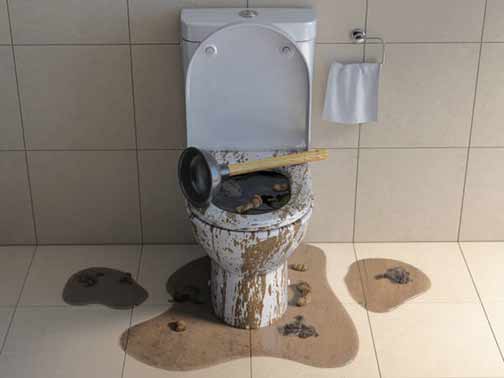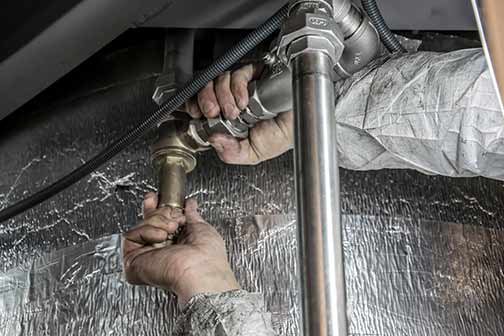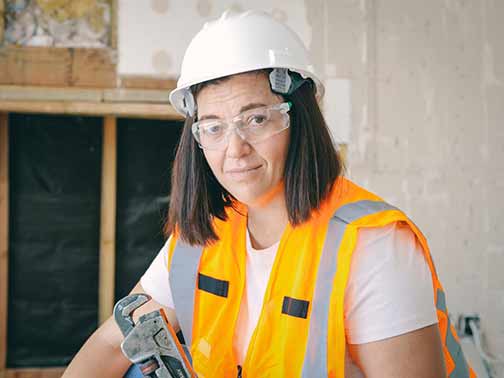
Recurring sewer backups can be a homeowner’s nightmare, causing not only significant inconvenience but also potential health hazards and property damage. Understanding the root causes and effective solutions is crucial for maintaining a safe and functional home. Below we will explore the ultimate solutions for recurring sewer backups, providing expert advice and practical tips to keep your plumbing system in top shape.
Understanding Recurring Sewer Backups
Sewer backups occur when wastewater from your home cannot flow properly into the municipal sewer system or septic tank, causing it to reverse direction and enter your home. This can lead to unpleasant and unsanitary conditions that affect your daily life and potentially cause damage to your property. Recognizing the early signs of sewer backups can help you address the issue before it escalates into a major problem.
Common Causes of Sewer Backups
Several factors can contribute to recurring sewer backups. One common cause is the accumulation of debris and foreign objects in the sewer line, which can block wastewater flow. Tree roots can also infiltrate sewer lines, causing blockages and structural damage. Additionally, outdated or damaged pipes may be more susceptible to backups, as can issues with the municipal sewer system itself. Understanding these causes can help you take preventative measures to avoid future backups.
Regular Maintenance and Inspection
One of the most effective ways to prevent recurring sewer backups is to schedule regular maintenance and inspections of your plumbing system. A professional plumber can use specialized equipment to check for signs of blockages, leaks, and other potential issues. Addressing these problems early on can prevent them from developing into more serious and costly repairs. Regular maintenance can also extend the lifespan of your plumbing system, ensuring it functions efficiently for years to come.

Proper Waste Disposal
Being mindful of what you dispose of down your drains and toilets is essential for preventing sewer backups. Avoid flushing items such as sanitary products, paper towels, and wipes, as these can easily cause blockages in your sewer line. Grease and oil should also be disposed of properly, as they can solidify in your pipes and create stubborn clogs. Educating your household on proper waste disposal practices can go a long way in preventing sewer backups.
Installing a Backwater Valve
A backwater valve is a device that can be installed in your sewer line to prevent wastewater from flowing back into your home during a backup. This valve automatically closes when it detects a reverse flow, effectively blocking the sewage from entering your property. Installing a backwater valve can provide peace of mind, especially if you live in an area prone to heavy rainfall or flooding. Speaking with a plumber that deals with sewer backups can help you determine if this solution is suitable for your home.
Addressing Tree Root Intrusions
Tree roots are a common cause of sewer line blockages, as they naturally seek out moisture and nutrients found in sewer pipes. Over time, these roots can grow into the pipes, causing significant damage and obstructions. Regularly inspecting your sewer lines and having a professional remove any intrusive roots can help prevent backups. In some cases, you may need to consider removing or relocating trees that pose a risk to your plumbing system.
Upgrading Your Sewer Line
If you have an older home with outdated sewer lines, upgrading to modern, more durable materials can help prevent recurring backups. Older pipes made from clay, cast iron, or Orangeburg are more susceptible to damage and deterioration. Replacing these with newer materials such as PVC or high-density polyethylene (HDPE) can improve the reliability and efficiency of your sewer system. A professional plumber can assess the condition of your existing pipes and recommend the best options for your home.
Utilizing Professional Sewer Cleaning Services
Professional sewer cleaning services can effectively remove stubborn blockages and build-up in your sewer lines, helping to prevent backups. These services typically use high-pressure water jets or specialized mechanical tools to clear out debris and restore proper flow. Scheduling regular cleanings can keep your sewer lines in optimal condition and reduce the risk of recurring issues. Consulting with a trusted plumbing company can help you establish a maintenance schedule that suits your needs.

Dealing with Emergency Backups
Despite your best efforts, emergencies can still happen. Knowing how to respond to a sewer backup can help mitigate damage and ensure the safety of your household. Immediately stop using water and plumbing fixtures, and contact a professional plumber to assess and address the situation. While waiting for help, you can contain the affected area and remove valuable items to prevent further damage. Renting a storage unit can be a practical solution for temporarily storing your belongings during the cleanup and repair process. Lippincott Van Lines offers secure and convenient storage options to help you manage your possessions during such emergencies.
Managing Flood Risks
Flooding can overwhelm your sewer system, leading to backups and other issues. Taking steps to manage flood risks around your property can help protect your home from sewer backups. This may include installing sump pumps, ensuring proper drainage around your home, and elevating important appliances and utilities above potential flood levels. Additionally, having a plan in place for dealing with heavy rainfall or flooding can help you respond quickly and effectively to minimize damage.
Conclusion: Proactive Measures for Peace of Mind
Recurring sewer backups can be a significant source of stress and inconvenience for homeowners. By understanding the causes and implementing preventative measures, you can protect your home and ensure the reliability of your plumbing system. Regular maintenance, proper waste disposal, installing backwater valves, addressing tree root intrusions, and upgrading your sewer lines are all effective strategies for preventing sewer backups. Also, managing flood risks and knowing how to respond to emergencies can provide you peace of mind and confidence in your home’s plumbing system.
Taking a proactive approach to your sewer system can save you time, money, and frustration in the long run. By working with professional plumbers and utilizing their expertise, you can ensure your home remains safe and functional, free from the disruptions caused by sewer backups.

